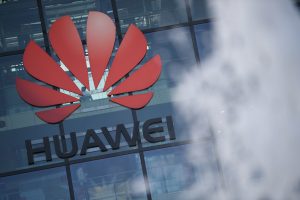The Kenya Commercial Bank (KCB) has revealed its plans to officially unveil its loan product; Vooma. Vooma is a product which the Kenya Commercial Bank (KCB) has developed in partnership with Asian telecommunications giant; Huawei.

Vooma which in Swahili translates to Speed, is a settlements and payments product that will be launched later this month (March 2021).
On the 23rd of December 2020 the Kenya Commercial Bank (KCB) shut down or rather discontinued its Mobiloan product. It will no be replaced by Vooma a product which has already been on a test run ahead of its unveiling.
The Chief Executive Officer (CEO) of Kenya Commercial Bank (KCB); Joshua Oigara while speaking to The Africa Report Magazine made it known that, “The platform is owned as a revenue share between us and Huawei. KCB will look at the others like Google or Apple coming in, when they are here.”
The Chief Executive Officer (CEO) believes that creating a lasting relationship with the customer is much more critical than being at loggerheads with the tech and fintech companies. He added that the banks which are able to create and foster partnerships with major tech companies early on, will be the ones to achieve success.
According to recent Data, there are about 7 million small businesses operating in the East African nation of Kenya. Out of the 7 million small businesses, only around 250,000 of them are making use of digital payment platforms.
The Kenya Commercial Bank (KCB) is looking to raise that figure to 1 million small businesses making use of digital payment platforms by the end of 2021.
For the Vooma partnership the Kenya Commercial Bank (KCB) will be providing the clients which the product would need, while Huawei will be providing the infrastructure.

According to Kenyan Wallstreet a sizable number of main executives within the East African nation of Kenya’s banking sector, believe that the entry of global or international technology firms will smother African banks who still utilize physical branches when it comes to reaching customers.
Observers however, believe that it is already too late and that there will only continue to be numerous partnerships between e-commerce, traditional financial institutions, and mobile money.
In Africa, major tech and fintech companies continue to challenge financial institutions. This is due to a large extent to the reality that said companies do not require banking licenses, supervision by or from regulators, along with of course, their financial strength.
The Chief Executive Officer (CEO); Joshua Oigara reaffirmed that the Kenya Commercial Bank (KCB) which is the largest lender in East Africa, is very well prepared and positioned for the digital payments platform sector. This is also evident in its strategic partnership with telecommunications giant; Safaricom for the development of the Fuliza platform, and KCB-M-Pesa platform.
Fuliza is an overdraft product which allows customers of Safaricom to be able to carry out financial transactions even when they do not have enough money or funds in their M-Pesa wallets.
The ongoing Coronavirus pandemic has somewhat inadvertently led to the evolution and growth of the digital financial sector with more and more traditional financial institutions partnering up with telecommunications companies in order to properly provide digital platforms and services to its customers.
In the words of the Chief Executive Officer (CEO) of Kenya Commercial Bank (KCB); Joshua Oigara, “I think KCB has survived the pandemic by migrating its transactions to the digital channels where it already had a competitive edge.”

Since March 2020 the Kenya Commercial Bank (KCB)’s digital transactions have increased by quadruple since March of 2020. It has also been able to move more than 98 percent of its transactions from its physical branches.
The Chief Executive Officer (CEO) of Kenya Commercial Bank (KCB); Joshua Oigara further added that 95 percent of the financial transactions in Kenya are still being carried out via Cash transactions. This is interesting considering the fact that telecommunication companies and traditional financial institutions are currently looking for dominance in the digital payment sector.
The Chief Executive Officer (CEO) added that the Kenya Commercial Bank (KCB) is aiming to reduce the figure to only 20 percent to 30 percent cash transactions and in the process, make a substantial income increase from said transactions.
How informative was this article? Are there any other news topics, categories, or How To topics, that you would like us to write on? Feel free to reach out to Mpesa Pay in the comment section.


